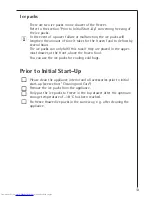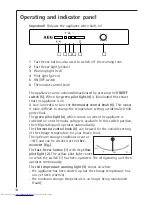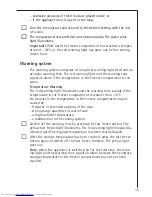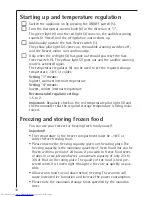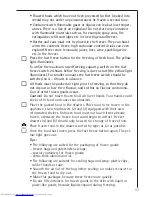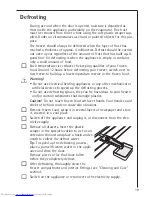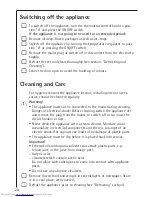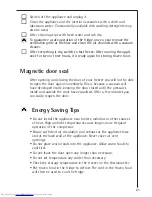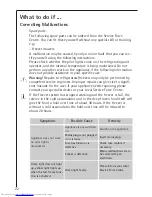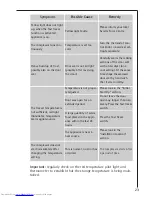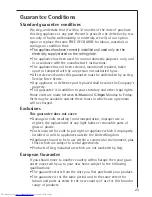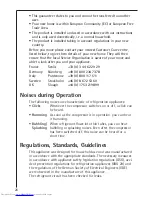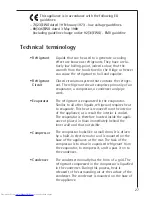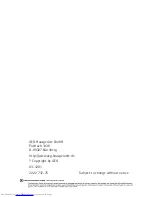
27
Technical terminology
•
Refrigerant
•
Refrigerant
Circuit
•
Evaporator
•
Compressor
•
Condenser
Liquids that can be used to a generate a cooling
effect are known as refrigerants. They have a rela-
tively low boiling-point, indeed so low, that the
warmth from the food stored in the fridge or freezer
can cause the refrigerant to boil and vaporise.
Closed circulation system that contains the refriger-
ant. The refrigerant circuit comprises primarily of an
evaporator, a compressor, a condenser and pipe
work.
The refrigerant is evaporated in the evaporator.
Similar to all other liquids, refrigerant requires heat
to evaporate. This heat is removed from the interior
of the appliance, as a result the interior is cooled.
The evaporator is therefore located inside the appli-
ance or placed in foam immediately behind the
inner wall and thus not visible.
The compressor looks like a small drum. It is driven
by a built-in electric motor and is mounted on the
base of the appliance at the rear. The task of the
compressor is to draw in vaporised refrigerant from
the evaporator, to compress it, and to pass it on to
the condenser.
The condenser normally has the form of a grid. The
refrigerant compressed in the compressor is liquefied
in the condenser. During this process, heat is
released to the surrounding air at the surface of the
condenser. The condenser is mounted on the base of
the appliance.
This appliance is in accordance with the following EU
guidelines:
– 73/23/EWG dated 19 February 1973 - low voltage guidelines.
– 89/336/EWG dated 3 May 1989
(including guideline change notice 92/31/EWG) - EMV guideline

